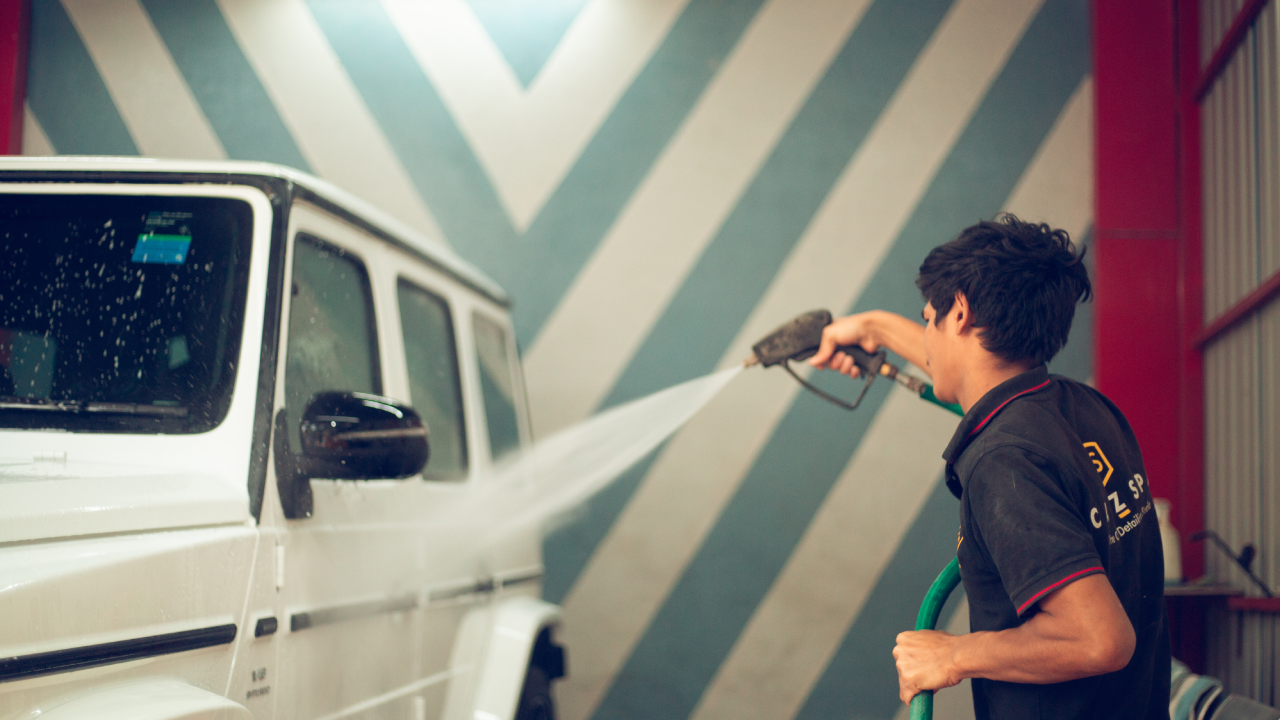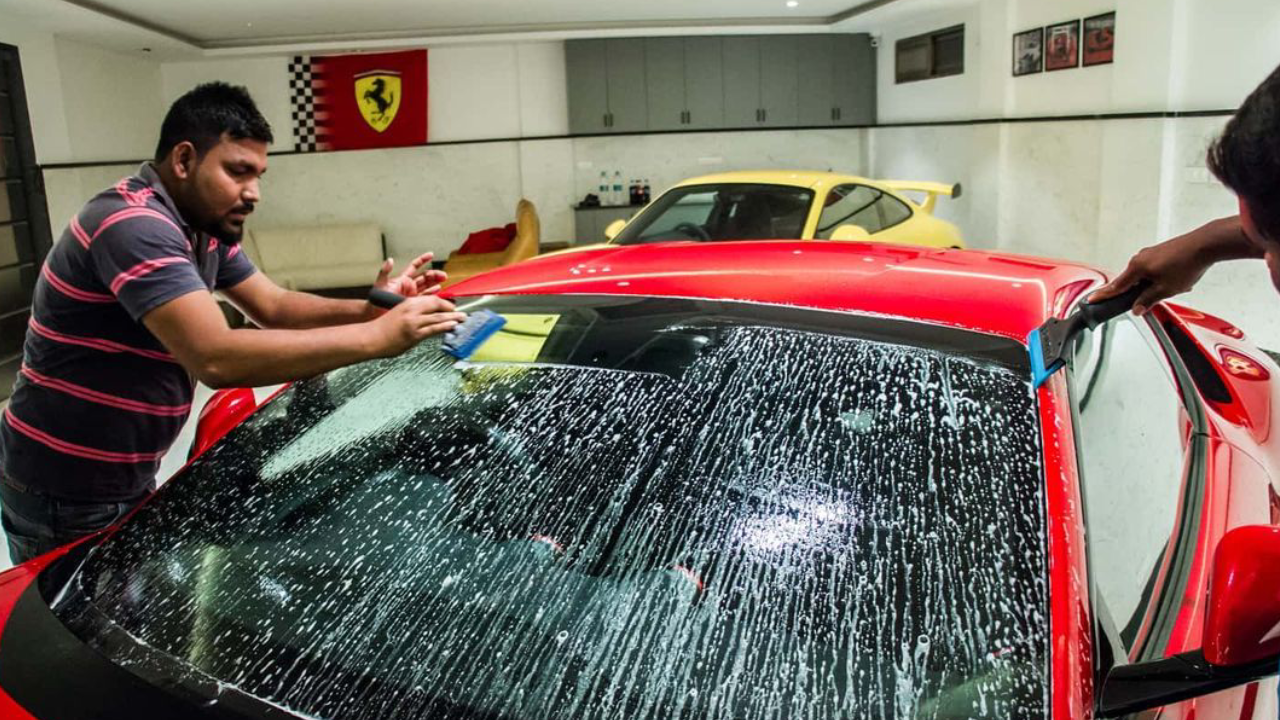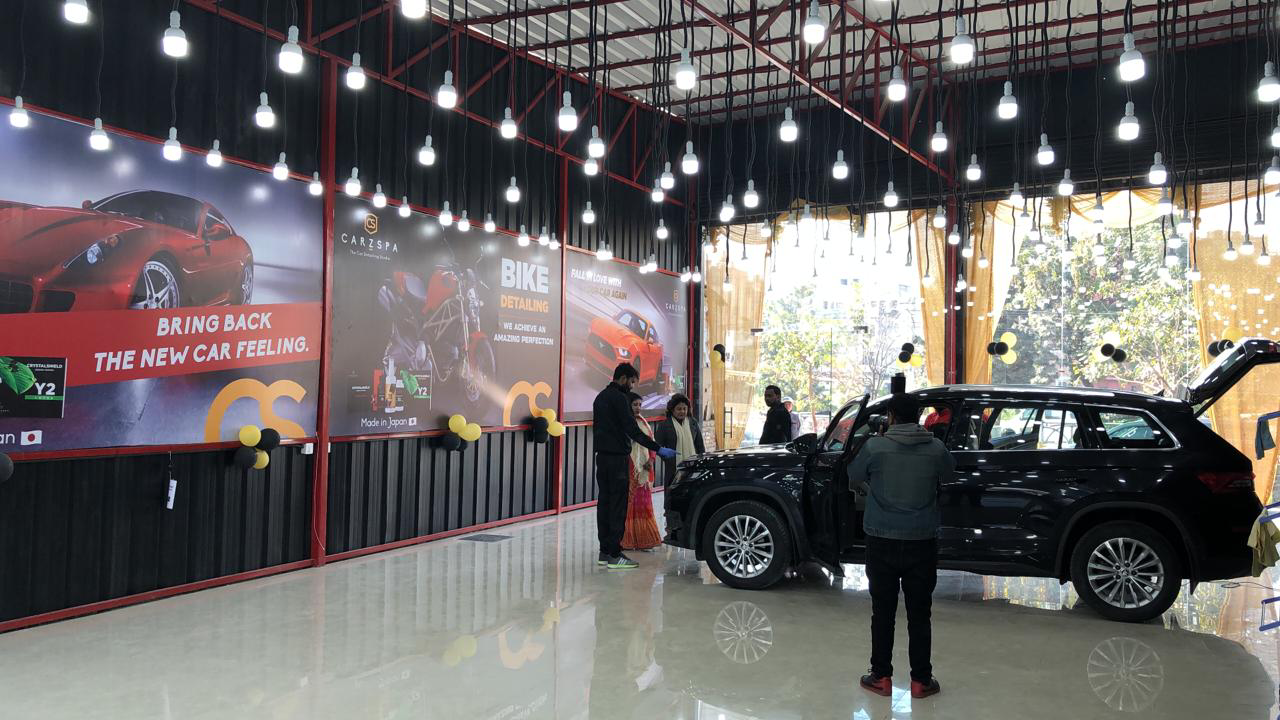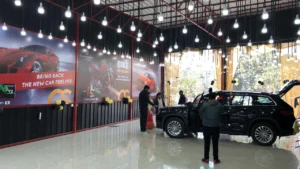When automotive enthusiasts debate the most reliable engines ever built, Toyota engines consistently dominate the conversation. With over 10 million vehicles sold annually worldwide and a presence in 170+ countries, Toyota has built its reputation on one fundamental principle: engineering excellence that stands the test of time. In India alone, Toyota has sold over 3 million vehicles until 2023, with many first-generation Innovas and Corollas still running smoothly on Indian roads after two decades of service.
In 2016, a Toyota Tundra clocked over a million miles on its original engine, earning a place in the Toyota museum and cementing the brand’s reputation for legendary Toyota engines. Stories like this aren’t rare; they’re proof that the Toyota reliability is more than a myth. For Indian drivers, the sight of first-generation Innovas and Corollas still running strong after two decades is a familiar testament to the brand’s engineering.
But what makes Toyota engines truly legendary? The answer lies in Toyota’s unique engineering philosophy, manufacturing precision, and an unwavering commitment to quality that has remained consistent for over eight decades. This comprehensive guide explores the technical innovations, design principles, and manufacturing excellence that have made Toyota engines the benchmark for automotive reliability worldwide.
Table of contents
- The Toyota Way: Engineering Philosophy Behind Legendary Engines
- Iconic Toyota Engines That Defined Generations
- Manufacturing Excellence: Why Toyota Engines Last Longer
- Toyota’s Hybrid Technology Revolution
- Maintenance Secrets of Toyota Engine Longevity
- Protecting Your Toyota’s Exterior: The Aegis PPF Advantage
- Performance vs. Reliability: Toyota’s Perfect Balance
- Toyota Engines in Indian Conditions
- Concluding Thoughts
- Frequently Asked Questions
The Toyota Way: Engineering Philosophy Behind Legendary Engines
The foundation of Toyota reliability lies in the company’s manufacturing philosophy known as the “Toyota Production System” (TPS). This approach, developed in the 1950s by Taiichi Ohno, emphasises continuous improvement (Kaizen), waste elimination, and quality at every stage of production. Unlike manufacturers who prioritize peak performance figures, Toyota engineers focus on creating engines that deliver consistent performance over hundreds of thousands of kilometers.
Toyota engines are designed with conservative engineering margins, meaning components are built to handle significantly more stress than they’ll encounter in normal operation. This philosophy explains why a Toyota Camry’s 2.0-liter engine produces 150 horsepower instead of the 200+ horsepower that similar displacement engines from other manufacturers achieve. The trade-off results in engines that can operate reliably for 20-30 years with proper maintenance.
The company’s commitment to quality extends to supplier relationships, with Toyota working closely with parts manufacturers to ensure consistency. Every component, from pistons to timing chains, undergoes rigorous testing that often exceeds industry standards. This meticulous attention to detail has resulted in Toyota performance that may not always lead specification sheets but consistently delivers where it matters most – on the road, year after year.
Iconic Toyota Engines That Defined Generations
The 2JZ-GTE: The Enthusiast's Dream
Perhaps no engine embodies legendary Toyota engines more than the 2JZ-GTE that powered the Toyota Supra. This 3.0-liter inline-six twin-turbo engine, produced from 1991 to 2002, has achieved mythical status among automotive enthusiasts. With its iron block construction and robust internals, the 2JZ-GTE can handle over 1000 horsepower with proper modifications, making it a favorite in the tuning community.

The 2JZ’s legendary status comes from its overbuilt design – Toyota engineers created an engine capable of handling much more power than the factory 280 horsepower output. The closed-deck iron block, forged crankshaft, and conservative tuning meant that Toyota engines like the 2JZ could be pushed far beyond their original specifications while maintaining reliability.
The 1KD-FTV: Diesel Excellence
In the diesel segment, Toyota’s 1KD-FTV 3.0-liter turbo diesel engine has become synonymous with reliability in markets worldwide. Found in the Fortuner, Innova Crysta, and Hilux, this engine exemplifies Toyota reliability in harsh conditions. With a common-rail direct injection system and variable geometry turbocharger, the 1KD-FTV delivers strong torque while maintaining excellent fuel economy.

The 1KD-FTV’s reputation for durability comes from its robust construction and conservative tuning. Unlike competitors who extract maximum power from smaller displacement engines, Toyota prioritized longevity, resulting in an engine that routinely crosses 400,000 kilometers in commercial applications without major overhauls.
The 1NZ-FE: The Efficiency Champion
The 1NZ-FE 1.5-liter naturally aspirated engine, found in the Yaris and Vios, represents Toyota’s commitment to efficiency and reliability in smaller displacement engines. This engine achieves impressive fuel economy figures while maintaining the durability that defines Toyota performance. Its aluminum construction and DOHC design provide a perfect balance of weight, efficiency, and longevity.

Manufacturing Excellence: Why Toyota Engines Last Longer
The secret behind Toyota engines longevity lies in manufacturing precision that exceeds industry standards. Toyota’s production facilities maintain tolerances that are often 50% tighter than competitors, ensuring perfect component fit and reduced wear over time. This precision manufacturing is evident in the engine’s internal components, where pistons, rings, and cylinder walls are machined to exacting specifications.
Toyota reliability is further enhanced by the company’s approach to quality control. Every engine undergoes extensive testing before leaving the factory, including computer-controlled dyno testing that simulates years of operation in minutes. This quality assurance process catches potential issues before they reach customers, contributing to Toyota’s reputation for building engines that rarely fail prematurely.
The company’s investment in advanced manufacturing technology, including automated assembly lines and precision measurement systems, ensures consistency across millions of engines produced annually. This commitment to manufacturing excellence explains why Toyota engines from different production years and facilities maintain the same high standards of reliability and performance.
Toyota's Hybrid Technology Revolution
Toyota’s hybrid technology, pioneered with the Prius in 1997, represents a fundamental shift in engine design philosophy. The Toyota Hybrid System (THS) combines a highly efficient Atkinson cycle gasoline engine with electric motors, creating a powertrain that delivers exceptional fuel economy without sacrificing Toyota reliability.
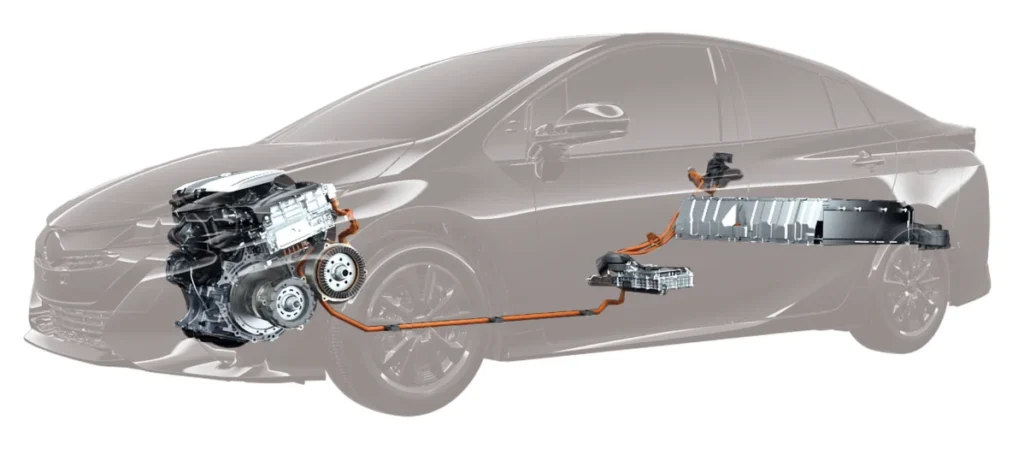
The hybrid system’s genius lies in its ability to operate the gasoline engine in its most efficient range while using electric motors to provide additional power when needed. This approach reduces engine stress and wear, contributing to the remarkable longevity of Toyota engines in hybrid applications. Many first-generation Prius vehicles have exceeded 500,000 kilometers with their original engines and hybrid batteries still functioning.
Toyota’s commitment to hybrid technology has resulted in over 18 million hybrid vehicles sold worldwide, with the technology now available across most of the company’s lineup. The Toyota performance in hybrid applications demonstrates that efficiency and reliability can coexist, challenging the notion that performance must come at the expense of longevity.
Maintenance Secrets of Toyota Engine Longevity
The legendary status of Toyota engines isn’t just due to superior engineering – it’s also because these engines respond exceptionally well to proper maintenance. Toyota’s maintenance philosophy emphasizes preventive care over reactive repairs, with service intervals designed to address potential issues before they become problems.
- Regular Oil Changes: Toyota reliability depends heavily on consistent oil changes using the correct viscosity and quality. Toyota engines are designed to operate optimally with conventional or synthetic oil changed every 10,000 kilometers, though severe driving conditions may require more frequent changes.
- Cooling System Maintenance: Toyota engines run cooler than many competitors due to efficient cooling system design. Regular coolant changes and thermostat maintenance ensure these systems continue operating at peak efficiency, preventing the overheating that can destroy engines.
- Timing Chain Care: Most modern Toyota engines use timing chains instead of belts, contributing to their longevity. These chains can last the engine’s lifetime with proper oil changes and maintenance, eliminating the need for expensive timing belt replacements.
- Fuel System Cleanliness: Toyota’s fuel injection systems are designed for longevity, but they benefit from periodic cleaning and quality fuel. Using top-tier gasoline and periodic fuel system cleaning helps maintain the precision that defines Toyota performance.
Protecting Your Toyota's Exterior
While Toyota engines are legendary for their durability, protecting your Toyota’s exterior finish requires equal attention to detail. Just as Toyota engineers over-build their engines for longevity, protecting your vehicle’s paint with premium solutions ensures your Toyota maintains its pristine appearance for decades.
Aegis PPF represents the pinnacle of paint protection technology, offering the same level of engineering excellence that defines Toyota reliability. This premium paint protection film provides invisible armor against stone chips, scratches, and environmental damage that can compromise your Toyota’s appearance over time.

The Aegis PPF advantage lies in its advanced thermoplastic polyurethane construction, which offers self-healing properties that eliminate minor scratches when exposed to heat. This technology ensures your Toyota’s paint remains flawless, complementing the legendary durability of Toyota engines with exterior protection that matches Toyota’s standards for longevity.
For Toyota owners who appreciate the engineering excellence that goes into every engine, Aegis PPF provides the same level of protection and attention to detail for your vehicle’s exterior. The film’s optical clarity and durability ensure that your Toyota maintains its showroom appearance while the legendary engine continues delivering reliable performance for hundreds of thousands of kilometers.
Professional installation of Aegis PPF by certified technicians ensures perfect fitment and maximum protection, just as Toyota’s precision manufacturing ensures optimal engine performance. This combination of legendary mechanical reliability and superior paint protection creates a vehicle that maintains its value and appearance for decades.
Performance vs. Reliability: Toyota's Perfect Balance
The genius of Toyota engines lies in their ability to deliver consistent performance without sacrificing longevity. While other manufacturers chase peak power figures, Toyota engineers focus on creating engines that perform reliably across their entire service life. This philosophy explains why Toyota performance may not always lead dyno charts but consistently delivers where it matters most.
Toyota reliability is achieved through conservative tuning that operates engines well within their design limits. This approach means that while a Toyota engine may not produce maximum possible power, it will deliver its rated performance consistently for hundreds of thousands of kilometers. The trade-off between peak performance and longevity has proven successful, with Toyota engines routinely outlasting competitors by significant margins.
The company’s approach to performance optimization focuses on efficiency and drivability rather than raw power. Toyota engines are tuned to provide smooth power delivery, excellent fuel economy, and minimal emissions while maintaining the durability that defines the brand. This balanced approach has resulted in engines that satisfy daily driving needs while providing the reliability that Toyota customers expect.
Toyota Engines in Indian Conditions
Indian driving conditions present unique challenges that have proven the mettle of Toyota engines. From the extreme heat of Rajasthan to the monsoon flooding of Mumbai, Toyota reliability has been tested in some of the world’s harshest automotive environments. The success of models like the Innova, Fortuner, and Camry in Indian conditions demonstrates the adaptability of Toyota’s engineering philosophy.

Toyota engines perform exceptionally well in Indian conditions due to their robust construction and conservative tuning. The 1KD-FTV diesel engine in the Fortuner, for example, handles the extreme temperature variations and poor fuel quality common in India without compromising reliability. This adaptability has made Toyota a trusted brand among Indian consumers who value dependability.
The company’s approach to Indian market requirements has resulted in engines that can handle extended service intervals, variable fuel quality, and extreme operating conditions while maintaining Toyota performance standards. This adaptability explains why many Indian Toyota owners report trouble-free operation well beyond 200,000 kilometers.
Concluding Thoughts
The legendary status of Toyota engines isn’t accidental – it’s the result of decades of engineering philosophy that prioritizes reliability, efficiency, and longevity over flashy specifications. From the iconic 2JZ-GTE to the efficient hybrid systems in modern Toyotas, these engines represent a commitment to excellence that has remained consistent for over eight decades.
Toyota reliability has been proven in every conceivable condition, from the extreme environments of commercial applications to the daily commutes of millions of drivers worldwide. The company’s approach to engineering, manufacturing, and quality control has created engines that consistently exceed expectations while providing the dependability that defines the Toyota brand.
For Toyota owners who appreciate the engineering excellence that goes into every engine, protecting your vehicle’s exterior with premium solutions like Aegis PPF ensures that your Toyota maintains its appearance to match the legendary durability of its powertrain. The combination of reliable mechanical components and superior paint protection creates a vehicle that truly stands the test of time.
The future of Toyota engines looks as promising as their illustrious past, with new technologies building upon the foundation of reliability and performance that has made Toyota engines legendary. Whether powered by gasoline, hybrid systems, or hydrogen fuel cells, Toyota’s commitment to engineering excellence ensures that future generations will continue to appreciate the legendary reliability that defines Toyota engines.
Frequently Asked Questions
1. What makes Toyota engines so reliable compared to other manufacturers?
Toyota engines achieve legendary reliability through conservative engineering, precision manufacturing, and rigorous quality control. Toyota prioritizes longevity over peak performance.
2. Which Toyota engine is considered the most legendary?
The 2JZ-GTE inline-six engine from the Toyota Supra is widely considered the most legendary Toyota engine due to its incredible durability and ability to handle extreme power modifications.
3. How long do Toyota engines typically last with proper maintenance?
With proper maintenance, Toyota engines routinely exceed 300,000 kilometers and can often reach 500,000+ kilometers before requiring major overhauls.
4. Are Toyota hybrid engines as reliable as traditional gasoline engines?
Yes, Toyota hybrid system allows the gasoline engine to operate in its most efficient range while electric motors provide additional power, resulting in less wear and exceptional longevity.
5. How can I protect my Toyota’s exterior to match its engine reliability?
Protecting your Toyota’s exterior with premium solutions like Aegis PPF ensures your vehicle’s appearance matches the legendary durability of its engine.


